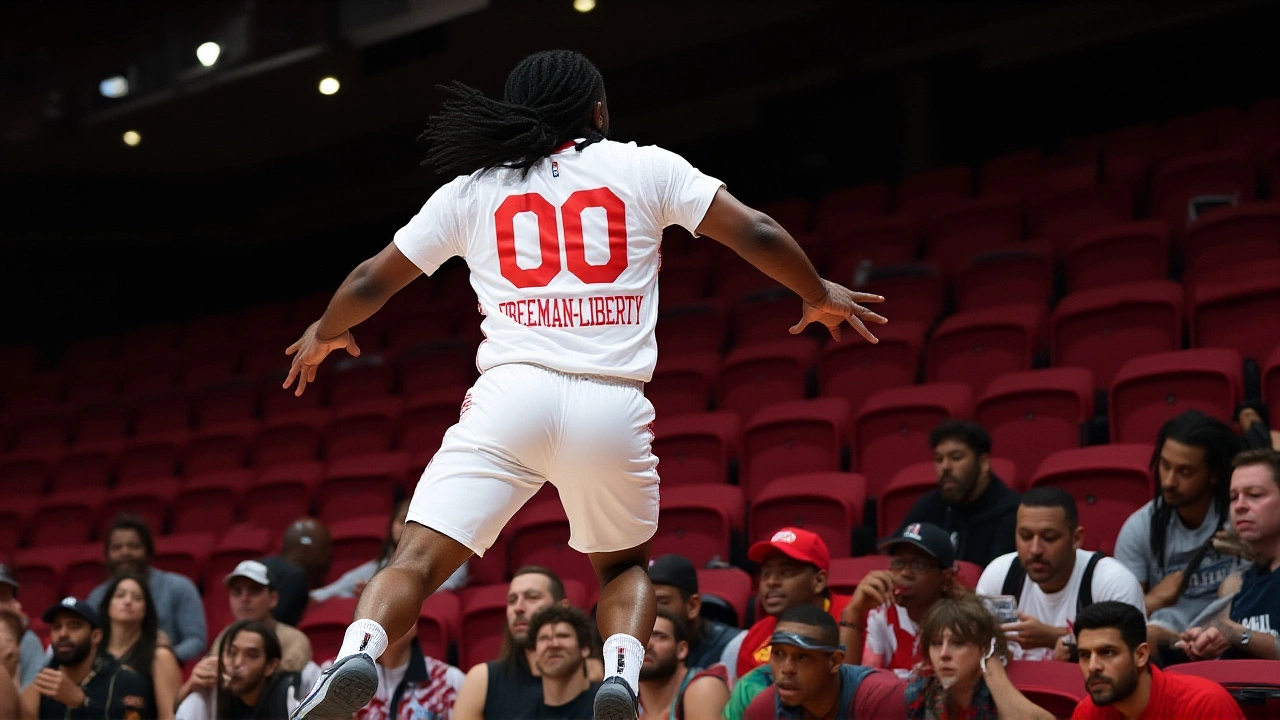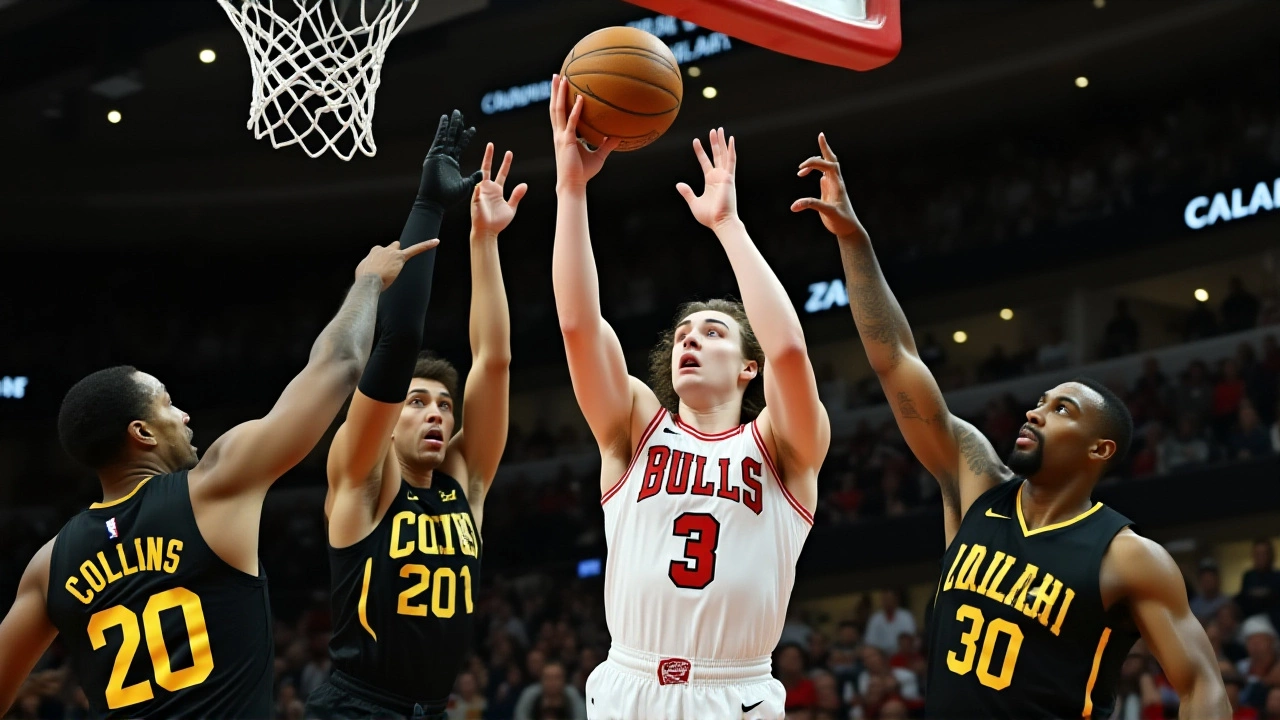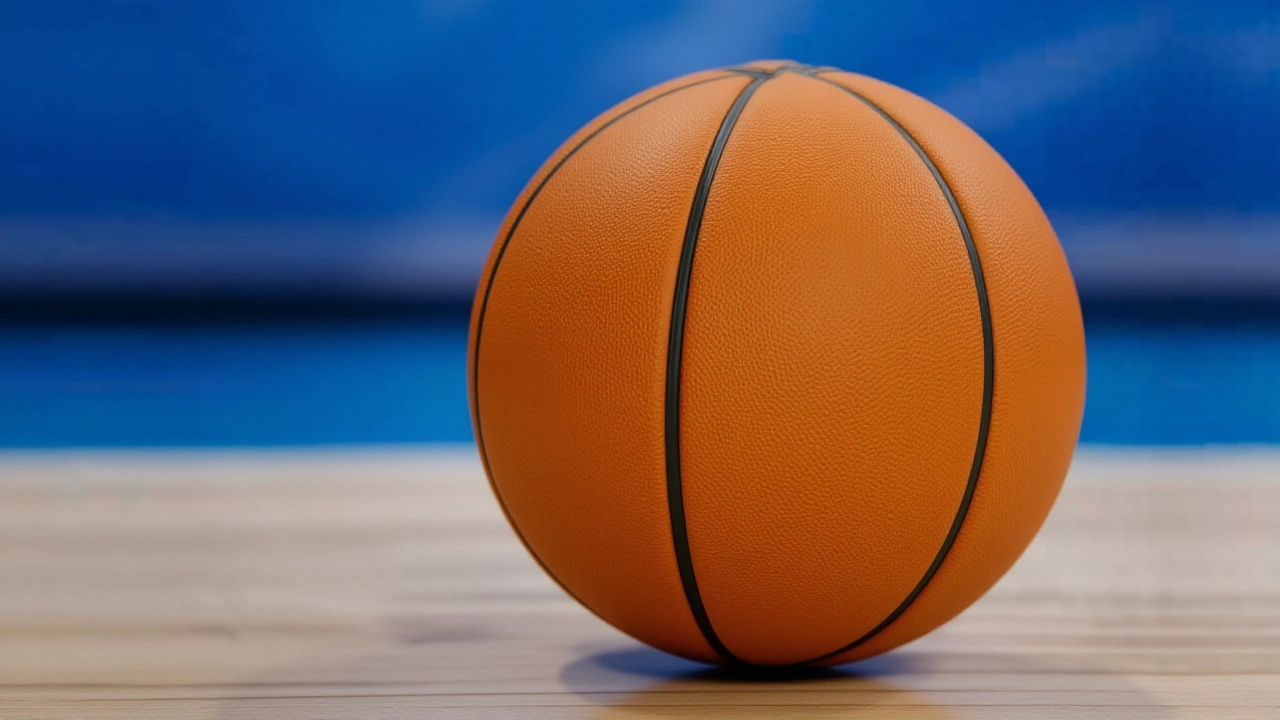With 0.8 seconds left in double overtime, Keyonte George rose from the right arc, launched a three-pointer, and sent the Utah Jazz bench into pandemonium. The ball swished. The clock hit zero. The final: 150-147. On a chilly November night in Salt Lake City, the Utah Jazz didn’t just beat the Chicago Bulls—they outlasted them in the highest-scoring game of the 2025-26 NBA season, a 297-point rollercoaster that left fans breathless and stat-keepers scrambling.
A Game That Rewrote the Record Book
The Utah Jazz vs. Chicago Bulls game on November 16, 2025 at the Delta Center didn’t just break records—it shattered them. With 297 total points, it surpassed the previous high of 281 set just two days earlier between the Charlotte Hornets and Milwaukee Bucks. Even the 280-point shootout between Indiana and Utah on November 11 looked tame by comparison. This was basketball at its most chaotic, beautiful, and exhausting.Quarter by quarter, the lead flipped like a coin. The Bulls surged ahead by 15 in the second quarter. The Jazz clawed back. Then, in regulation, Josh Giddey drove hard to the rim with three seconds left—his shot clanged off the back iron. A jump ball. Overtime. Then another. And another.
The Stars Who Carried the Night
No one dominated more than Lauri Markkanen. The Finnish forward poured in 47 points on 18-of-27 shooting, including six threes. He was the Jazz’s engine when things got tight. But it was Keyonte George, the 21-year-old guard from Texas, who delivered the dagger. With 33 points, including five triples, George didn’t just score—he orchestrated the final sequence. After Isaiah Collier tied the game at 147 with a floater with five seconds left in the second overtime, George received the inbounds pass, dribbled right, and pulled up from 24 feet. The shot was pure. The crowd roared. The Bulls were stunned.For Chicago, Josh Giddey was the definition of a triple-double machine. His 26 points, 12 rebounds, and 13 assists marked his 10th triple-double as a Bull—joining Michael Jordan (28) and Scottie Pippen (15) as the only players in franchise history to reach that milestone. It was his third triple-double this season and the 21st of his career. Yet, even his brilliance wasn’t enough. Coby White, returning from injury, added 27 points and eight assists in his season debut, but missed a crucial mid-range jumper in the final seconds of the first overtime.

The Streaks and the Standings
The win snapped a three-game skid for the Jazz, lifting them to 5-8 on the season. For the Bulls? It was their fifth straight loss, dropping them to 6-6 and out of the top eight in the Eastern Conference. Detroit leads the East at 11-2. Oklahoma City rules the West at 13-1. The Jazz? They’re still searching for consistency. But this game? It proved they can play with anyone when the lights shine brightest.The matchup was the second of four between these teams this season. The next meeting? December 12 in Chicago. The Bulls will have to find a way to close out games. The Jazz? They’ll need to stop giving up 147-point nights.
Why This Game Matters Beyond the Box Score
Double-overtime games are rare—this was only the fourth of the season. But this one felt different. It wasn’t just about the scoring. It was about resilience. About young players stepping up. About veterans refusing to quit. Markkanen, who’s often criticized for his defense, played with grit. George, a second-year player, handled pressure like a veteran. Giddey, just 23, carried his team through three overtimes with a poise that belies his age.And then there’s the context: the Jazz are rebuilding. The Bulls are trying to find their identity. Both teams are in transition. But on this night, in this building, they gave us something rare: basketball that felt timeless. No hype. No gimmicks. Just two teams playing for every inch, every possession, every second.

What’s Next?
The Jazz host the Sacramento Kings on Tuesday. The Bulls travel to Atlanta to face the Hawks on Wednesday. But everyone will be watching: Can the Bulls recover from this heartbreaker? Can George build on this moment? And will anyone else break the 297-point mark this season?One thing’s certain: this game won’t be forgotten.
Frequently Asked Questions
How did Keyonte George’s game-winner compare to other clutch shots this season?
George’s three-pointer was the latest in a string of dramatic buzzer-beaters this season, but it stands out for its timing and pressure. Only two other game-winning shots in the 2025-26 season came in overtime: a layup by Jalen Suggs against Portland on November 3 and a fadeaway by Anthony Edwards against Phoenix on November 9. George’s shot was from farther out (24 feet), came after a tied game, and was executed under double-team pressure—making it statistically the most difficult game-winner of the year so far.
Why is Josh Giddey’s triple-double so significant for the Bulls?
Giddey became only the third player in Chicago Bulls history to record 10 triple-doubles as a member of the franchise, joining legends Michael Jordan and Scottie Pippen. Only 12 players in NBA history have reached 10 triple-doubles before turning 24. His 13-assist night also tied his career high, and he’s now the first Bull since Pippen (1995-96) to record three triple-doubles in a single season by December. His all-around impact is becoming the foundation of Chicago’s new identity.
What’s the record for most points in a single NBA game?
The all-time record remains 186 points, set by the Detroit Pistons and Denver Nuggets in 1983—a triple-overtime classic that ended 186-184. The 297-point total in this Jazz-Bulls game is the highest in the modern era since the three-point line was introduced in 1979. It’s also the first time since 2019 that two teams have both scored over 145 points in regulation and overtime combined.
How does this win affect the Jazz’s playoff chances?
At 5-8, the Jazz are still six games behind the eighth seed in the West. But this win showed they can compete with elite teams on their home floor. Their next five games are against teams with winning records, including the Thunder and Nuggets. If George and Markkanen continue this level of play, and their bench provides consistent scoring, they could sneak into the play-in tournament. But they need to win at least 7 of their next 10 to stay in the conversation.
What does this loss mean for the Bulls’ season trajectory?
The Bulls are now 6-6, squarely on the playoff bubble—but their five-game losing streak raises red flags. They’ve lost four of their last five by single digits, often in the final possession. Coach Billy Donovan has admitted they’re struggling to close games. With Coby White back and Giddey playing at an All-Star level, the pieces are there. But without better defensive discipline and clutch shooting, this team risks falling out of contention before the All-Star break.
Was the timing of George’s shot confirmed by official replay?
Yes. NBA officials reviewed the play using the league’s official timing system, which confirmed the shot was released at 0.8 seconds remaining. ESPN’s initial report of 2 seconds was a broadcast error caused by a lag in the arena clock feed. The NBA’s official game log and broadcast timestamp from the Delta Center’s central timing system are now the authoritative sources, and the shot is officially recorded as occurring with 0.8 seconds left.
